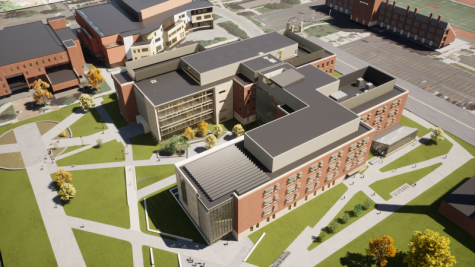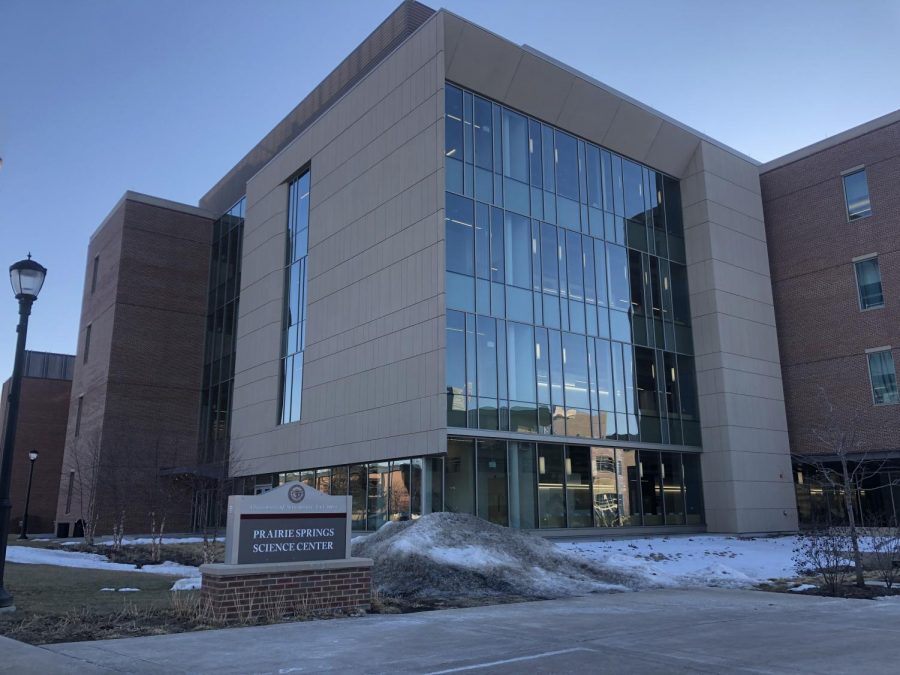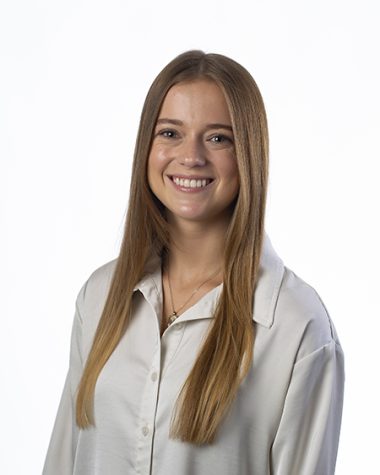UW System President Jay Rothman discusses the need for phase II approval of Prairie Springs
March 23, 2023
The University of Wisconsin-La Crosse created a two-phase construction project, the Prairie Springs Science Center, to replace Cowley Hall, the UWL science instruction facility. Phase one was completed in the summer of 2018 and the plan is to start phase two once the budget is approved.
On Monday, March 20, The Racquet Press sat down with the UW Systems President Jay Rothman to hear about the impending decision over the budget for phase two of Prairie Springs and the need for approval.
“A big focus and high priority of what we want to accomplish in the capitol budget is getting phase two of Prairie Springs approved,” said President Rothman. According to Chancellor Joe Gow, more than half of UWL students major in science and health. “Upwards of 40% of our graduates on a system-wide basis are now in the STEM or health care fields and UWL is an important component of that,” said Rothman.
UWL freshman Alexa Fleegal is majoring in biology with minors in chemistry and psychology. When asked what her thoughts are on phase two of Prairie Springs, she said, “I have had 3 labs in Prairie Springs this year. The facilities are always more than adequate for the material being taught and the lab rooms are vital for hands-on learning.”
Fleegal, as a biology major with a chemistry minor, said, “I believe that Prairie Springs has been a great place to hold labs and has played an important role in understanding the material in my classes.”
“Cowley is outdated and no longer suits the needs of students. The Prairie Springs phase two would provide updated facilities for students studying science to learn, practice, and meet with professors. I hope that the Prairie Springs phase two will be completed during my time at UWL because it will provide updated instructional areas that will improve my overall learning experience,” said Fleegal.
Phase two of Prairie Springs would consist of demolishing Cowley hall, a 54-year-old building, and constructing a new facility that connects to phase one of Prairie Springs. This final phase will include offices, classrooms, instructional labs, research labs, and specialized spaces to encourage the overall delivery of science instruction and learning at UWL.

“This university has such a great reputation in the sciences and health care fields, and this is evidence of a commitment to continue to invest in those fields,” said Rothman, “We have to make these investments to ensure that we can deliver a world-class education that our students deserve and quite frankly their parents expect from us.”
“Everyone will use this facility, whether it is to take a general education course or to explore their major. That component benefits the campus as a whole, attracts more students here, and makes us a stronger environment at what is already a great university,” said Rothman.
Phase one included the space for 36 instructional labs and 23 research labs for cadaver-based studies, microscope imaging, wet labs for aquatic science, food microbiology and nutrition, and more.
The combined budget for both phases is estimated to be $174.8 million. Prairie Springs will support the programs of biology, biochemistry, chemistry, earth science, geography, microbiology, physics, and the River Studies Center and Radiation Center.
In August of 2022, the UW System Board of Regents placed a high priority on a request for $186 million to fund the completion of the Prairie Springs Science Center and Cowley Hall demolition in the 2023-2025 budget. Governor Tony Evers included a similar appropriation in his $2.4 billion capital budget when creating the proposal for Wisconsin’s next biennial budget, which as of January, the Republican-controlled Joint Committee on Finance had delayed approval of.
“The university’s reputation throughout the system and throughout the state continues to grow as a place where you can go to get a high-quality education with engaged faculty and staff,” said Rothman, “Now we have to do our best to make sure this possibility becomes our reality.”







